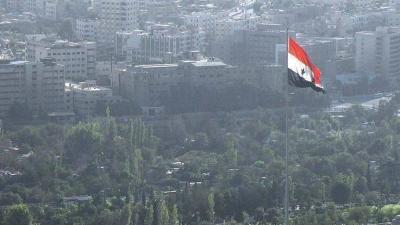The Constitutional Court of Syria began accepting the first applications for the country's presidential election on Monday, amid a civil war that has persisted since 2011 and a severe economic crisis. It is widely expected that these elections will keep power in the hands of the current president, Bashar al-Assad, who has been ruling Syria since 2000. The elections are scheduled for May 26.
According to the Syrian official news agency (SANA), the Speaker of the People’s Assembly announced that he received two letters from the Constitutional Court, indicating that Abdullah Salloum Abdullah and Mohammad Firas Yasin Rajouh submitted applications to nominate themselves for the presidency.
To have their applications officially accepted, each candidate must obtain the support of at least 35 members from the 250-member People’s Assembly, in which the ruling Ba'ath Party holds a significant majority. One of the candidates is a former member of the People’s Assembly, while the other previously submitted a similar nomination request during the last presidential election in 2014; both are not widely known in Syria.
According to the Syrian constitution, the Constitutional Court will continue to accept applications for 10 days starting from Monday, up to April 28. One of the conditions for candidacy is that the candidate must have resided continuously in Syria for the past ten years, effectively barring any opposition figures living abroad from running.
Assad won the last election in June 2014 with over 88% of the vote, competing against two obscure candidates, which the opposition described at the time as a "formal" process. Presidential elections are held every seven years, and the upcoming elections will be the second since the conflict began in 2011, following the recovery of large areas of the country by government forces, while other areas remain under the control of local factions supported by external powers, which will not be included in the elections.
The elections are taking place amid an overwhelming economic crisis in Syria, exacerbated by years of warfare and Western sanctions, as well as the rapid economic collapse in neighboring Lebanon, where many Syrians, including businesspeople, deposit their money. More than a decade of conflict has resulted in over 388,000 deaths, the detention of tens of thousands, destruction of infrastructure, depletion of the economy, and the displacement and displacement of more than half of the population.




